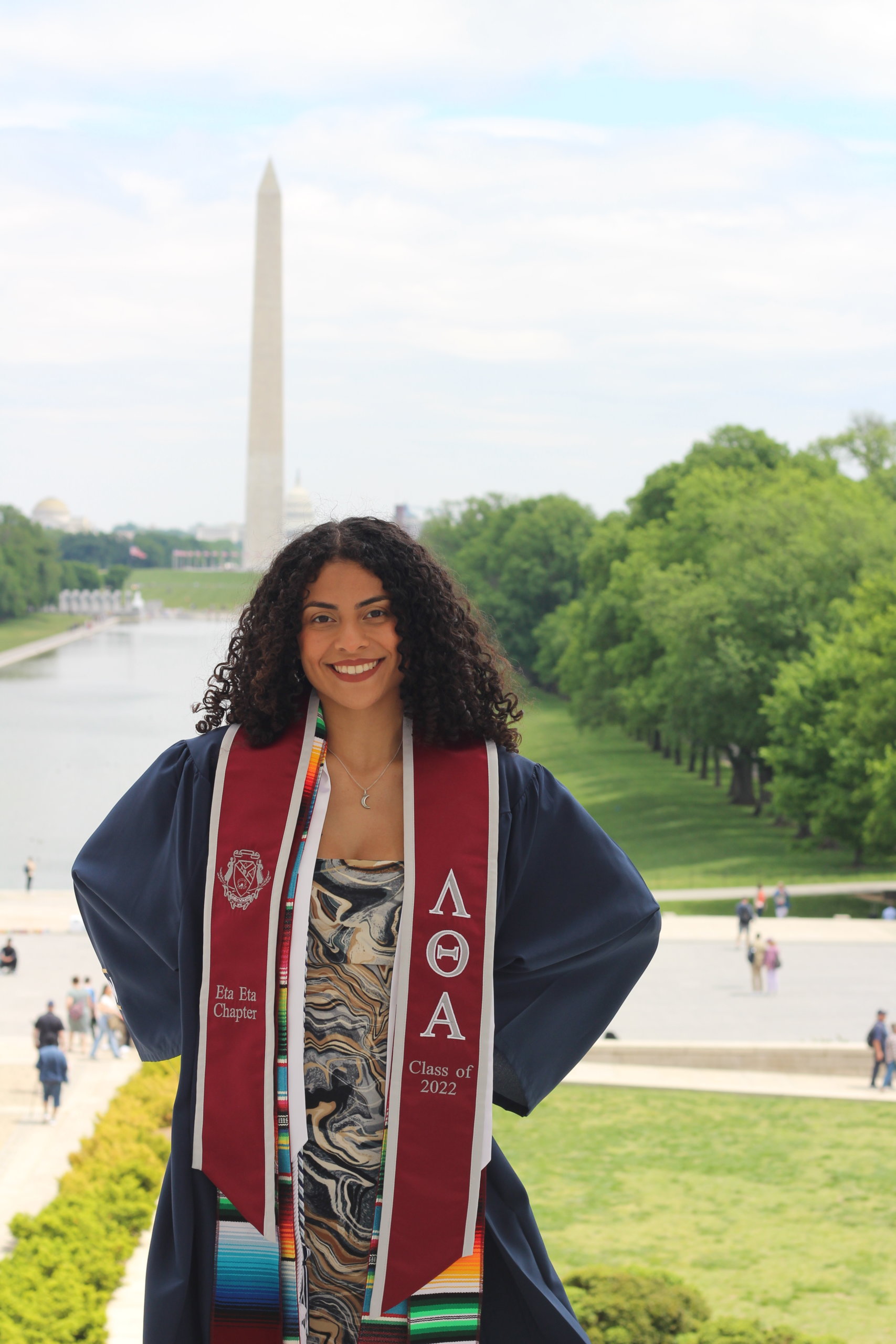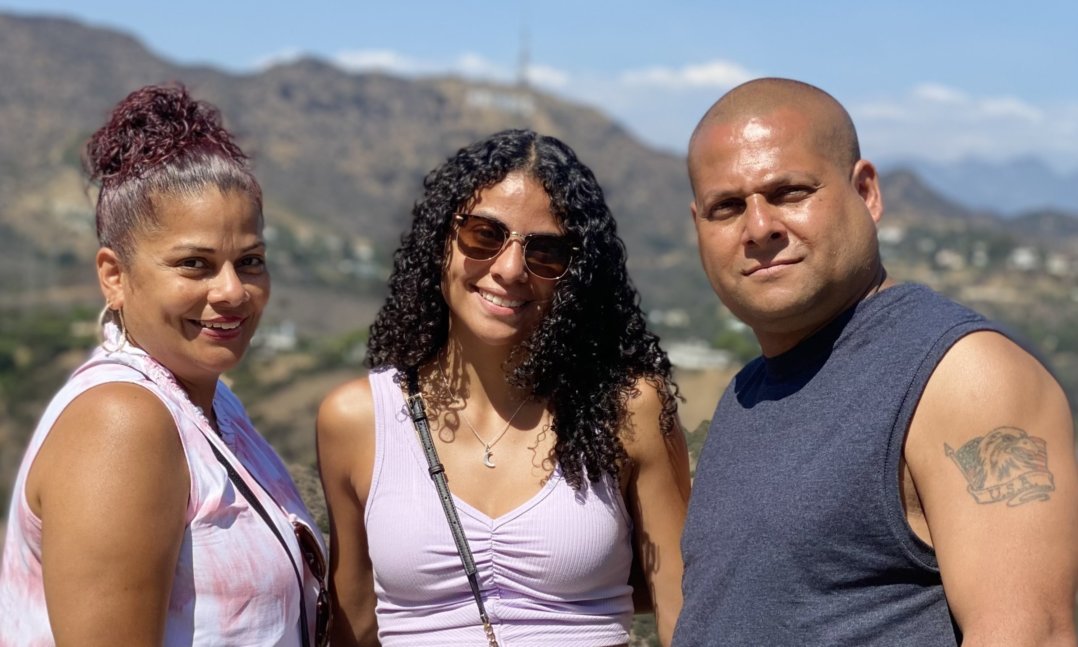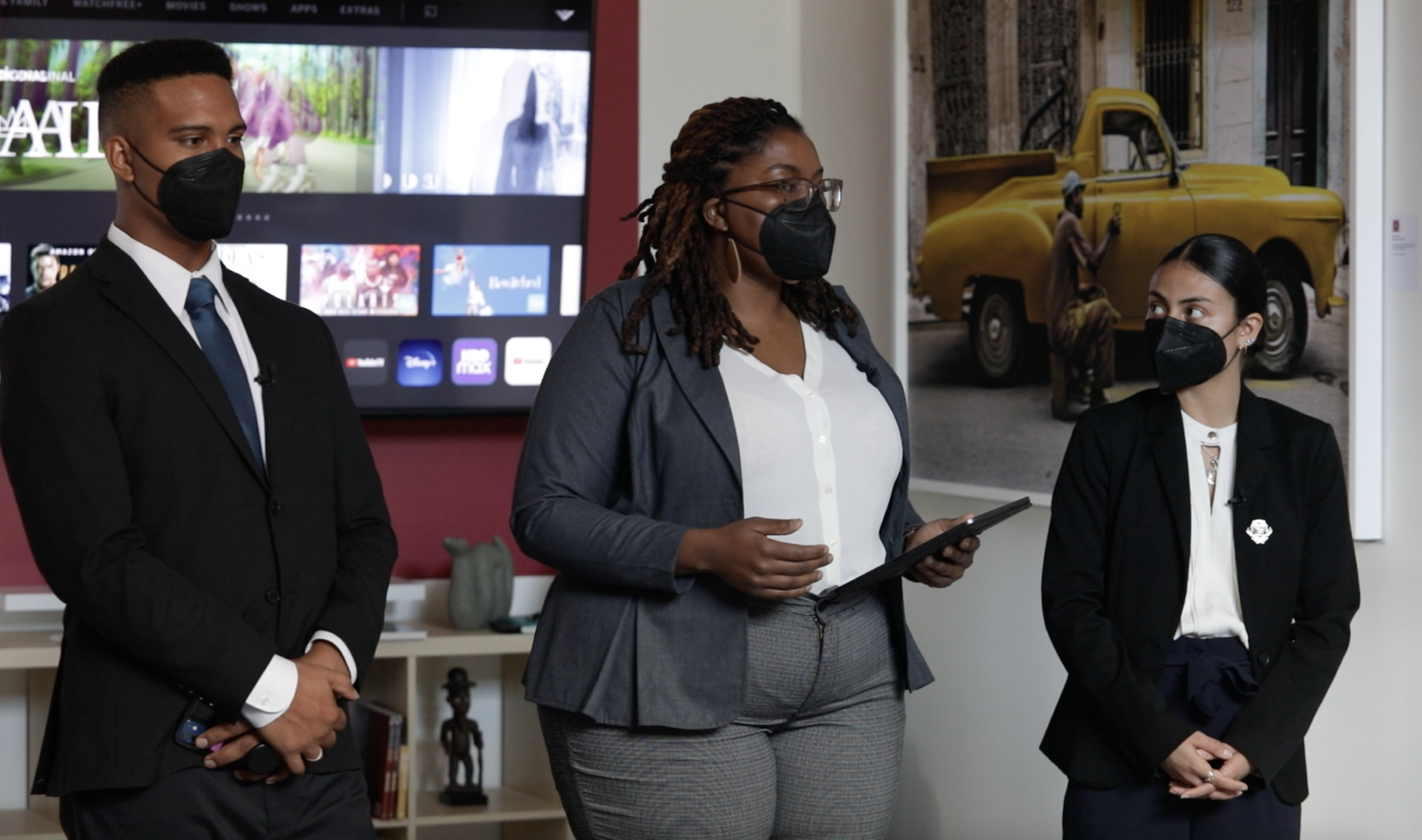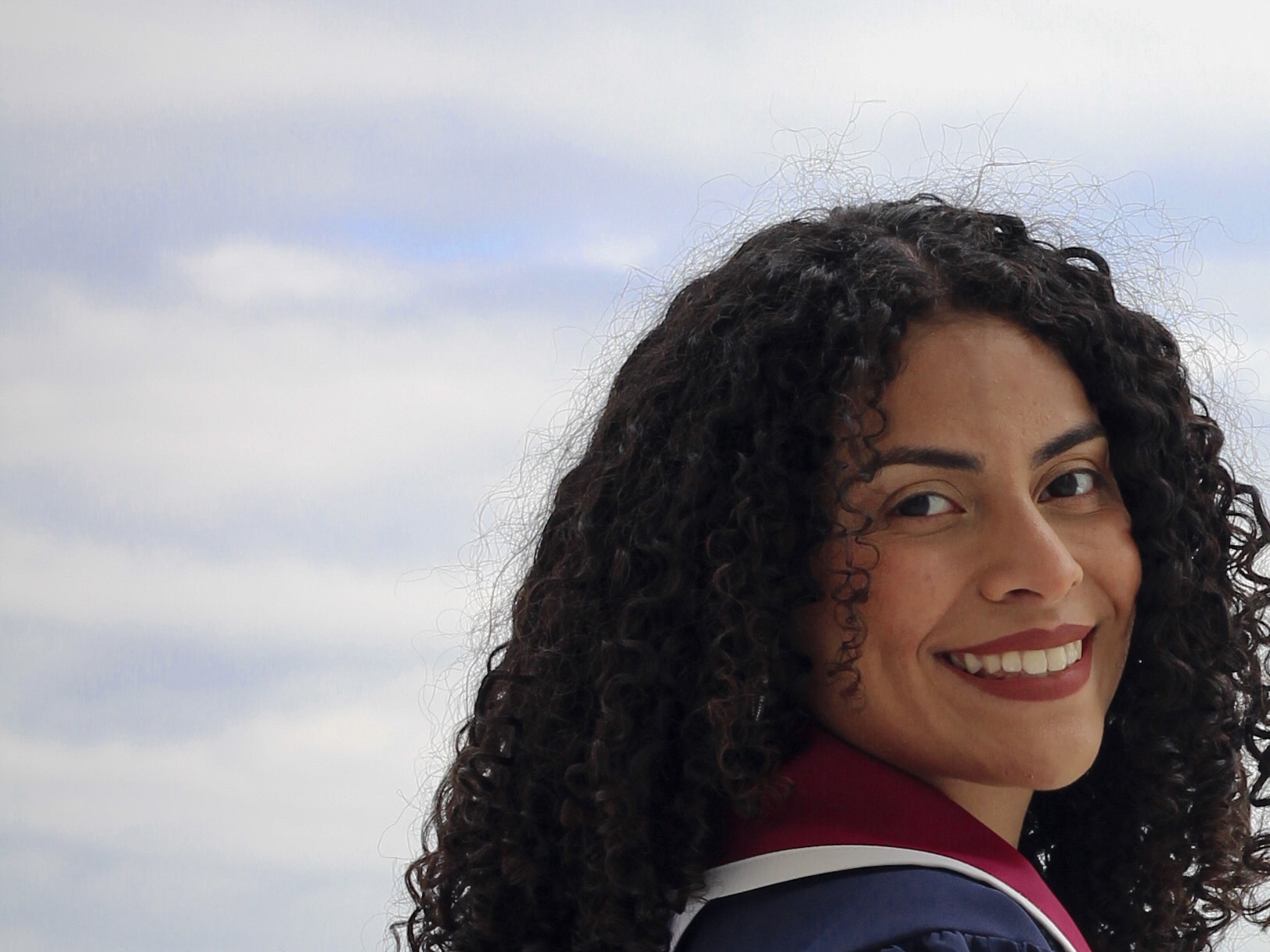Afro-Latinx Líderes Avanzando Fellow Keyla Michelle Ruiz Explains Why Forensic Psychology Matters
Last year UnidosUS launched the Afro-Latinx Líderes Avanzando Fellowship. The program is geared toward first-generation students pursuing their undergraduate, graduate, or doctoral degrees and recent college graduates who identify as Afro-Latinx and are passionate about racial equity and making meaningful change in their campus community, workplace, and beyond. ProgressReport.co has been publishing profiles of the participants throughout the spring and summer.
It’s hard to serve or get to know others when you’re not fully grounded yourself. That’s especially true of people working in mental health. Keyla Michelle Ruiz joined the UnidosUS Afro-Latinx Líderes Avanzando Fellowship last fall while pursuing her studies as a psychology and criminal justice major at George Washington University. The fellowship helped her explore all aspects of her identity, from her obvious, external markers to the many unique traits she has within.
“If I don’t know myself,” Ruiz says, “how am I supposed to help somebody else figure out who they are?”
The nine-month Afro-Latinx Líderes Avanzando program offered Ruiz a chance to do both simultaneously. Together with 11 other participants, she explored the many different manifestations of Afro-Latinx identity. The experience, she says, will make her a more detailed, culturally responsive juvenile psychologist and policy advocate for some of America’s most underrepresented youth.
Her interest in these topics is rooted in her childhood. Ruiz grew up in Humboldt Park, a working-class Chicago neighborhood with a high crime rate. Formal opportunities for work in the area are scarce and low-paid, leading some residents to resort to theft or dealing drugs. Several of Ruiz’s middle-school classmates were killed in incidents of street violence. She has had cousins in juvenile detention and an uncle who has been incarcerated for years.
“We would go and see him,” Ruiz says of her incarcerated uncle, “and even when I was five or six years old, I was getting checked by security guards. They wanted to make sure we weren’t bringing any weapons within us, even bobby pins,” she recalls. Ruiz describes how it felt to sit through her uncle’s court hearings: “That can be traumatizing as a young kid. It made me think about how the system is failing the people in our community.”

Those concerns propelled her through high school, helping her to arrive at George Washington University with a passion for understanding the intersection of criminal justice and mental health. Her studies were formative, but so was the experience of being a low-income student of color at a historically white, affluent institution of higher education, one of the most expensive in the nation. Many students and even some professors were completely out of touch with her experience, unable to relate to the Black and Latinx experience and sometimes using racist terms to refer to people of color.
These tensions made it harder for Ruiz to feel comfortable sharing stories of her community in class. Then, in her junior year, news of the police killings of Breonna Taylor and George Floyd hit the press, prompting greater awareness and a more open dialogue among her peers about the issues confronting Black and Latinx people in the United States.
“A lot of students now try to speak about the Black community and the struggles the Black community goes through, especially when it comes towards the criminal justice system,” she says.
From Introspection to Vocational Inspection
But it was the Afro-Latinx Líderes Avanzando Fellowship that enabled Ruiz to fully discuss her thoughts and feelings about her experiences. Through the fellowship, she could easily express her frustrations about the way non-Afro-Puerto Ricans in her high school called her curls pelo malo (bad hair), or the way her mom tried to stop the taunts by straightening Ruiz’s hair to the point of damaging it. Through the fellowship, Ruiz could talk about her loved ones in the system without having to explain how they got there.
“It’s a place where hopefully we can start changing the way other people in the world think about and view us,” she says.

And through the fellowship, Ruiz could channel her concerns into a presentation advocating for mental health legislation that would keep vulnerable students out of the school-to-prison pipeline. Throughout the fellowship, Ruiz partnered with Afro-Latinx Líderes Avanzando Fellow Orestes Marquetti to make the case for the Health Equity and Accountability Act of 2020. That legislation addresses health disparities among racial and ethnic minorities, women, the LGBTQ+ community, rural populations, and other socioeconomically disadvantaged communities.
“In the United States, 18% of the population identifies as Latinx. Of that 18%, over 16% identify as having a mental illness. The Latinx community is deprived of mental health resources,” Ruiz said during an Afro-Latinx Líderes Avanzando Fellowship policy and advocacy training session held in Miami in February.

Ruiz says that a college internship with the Illinois Prison Project exposed her to sad and dramatic examples of this reality. The Illinois Prison Project works to obtain clemency for adult prisoners in solitary confinement, prisoners who likely have years of unattended mental health struggles made worse by conditions of complete isolation.
“Working with these inmates was definitely a challenge,” she says. “A lot of them don’t get properly diagnosed. They don’t see an actual therapist or a clinician in the system, and if they do, sometimes it’s only once a year. A lot of them can’t control their own behavior, so they act out, doing things like spitting on guards, cutting themselves, or even threatening to kill themselves.”
Preparing for Improved Outcomes
The proud recipient of diplomas from both George Washington University and the Afro-Latinx Líderes Avanzando Fellowship, Ruiz will begin a master’s in forensic and legal psychology this fall at Marymount University in Virginia. The university will also give her the option to pair her studies with a master’s in clinical psychology.
“I want to learn more about how the system actually works, what’s lacking within the system, and then how I can help juveniles with anxiety, depression, schizophrenia, and other disorders,” she says.
Ruiz is hopeful that her studies will help her develop better social and emotional supports for those who are in the system and those at risk of entering it, all while making the case for reduced prison sentences and doing away with solitary confinement.
Her dream is to work her way into a position where she serves as a therapist, researcher, and a policy advocate all at the same time.
Ruiz says her family back in Chicago can’t wait to see how she transforms communities like theirs.
“I’m doing it for me, and I’m doing it for them,” she says. “I’m paving the way for my cousins and my cousins’ cousins.”

